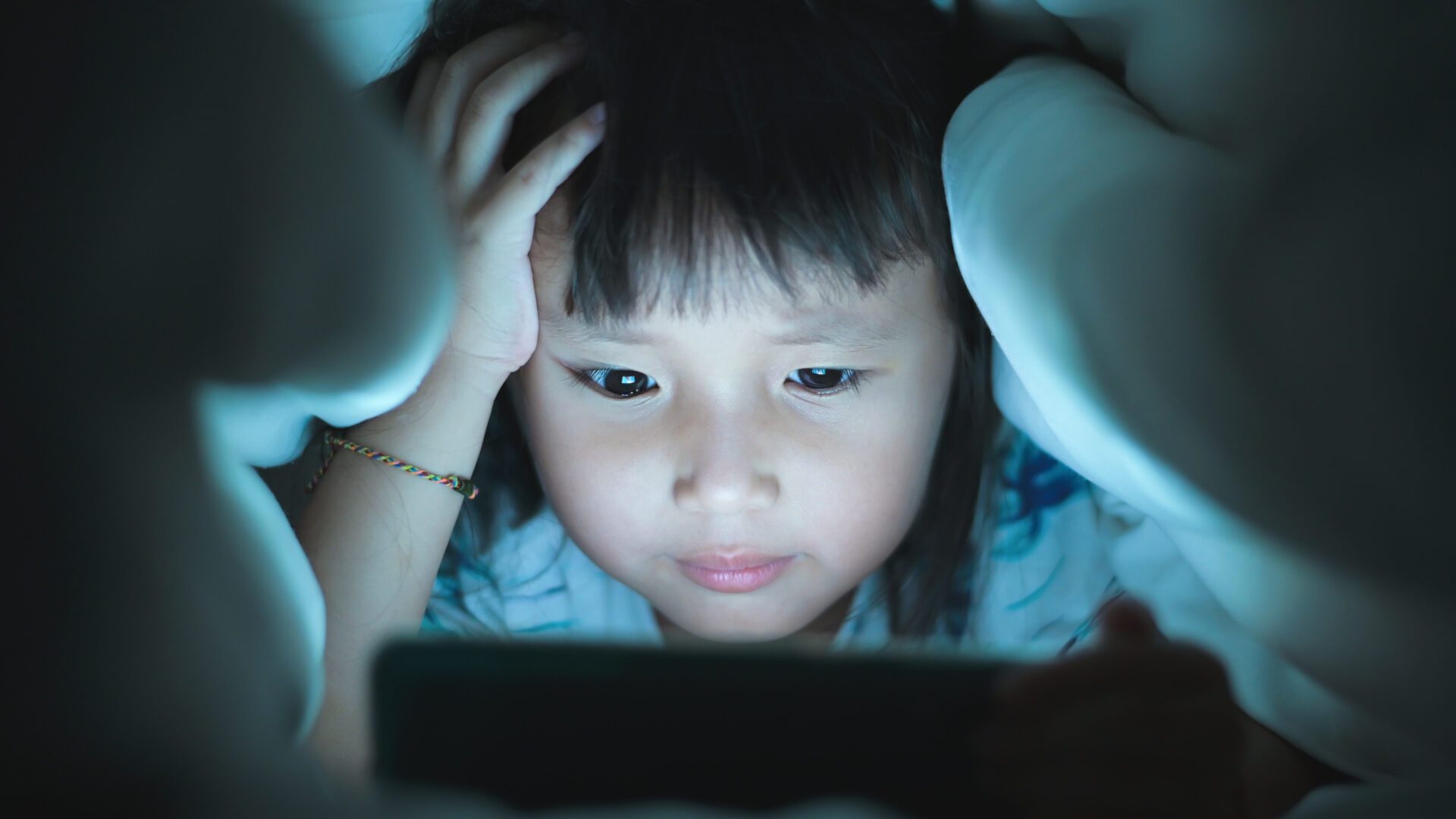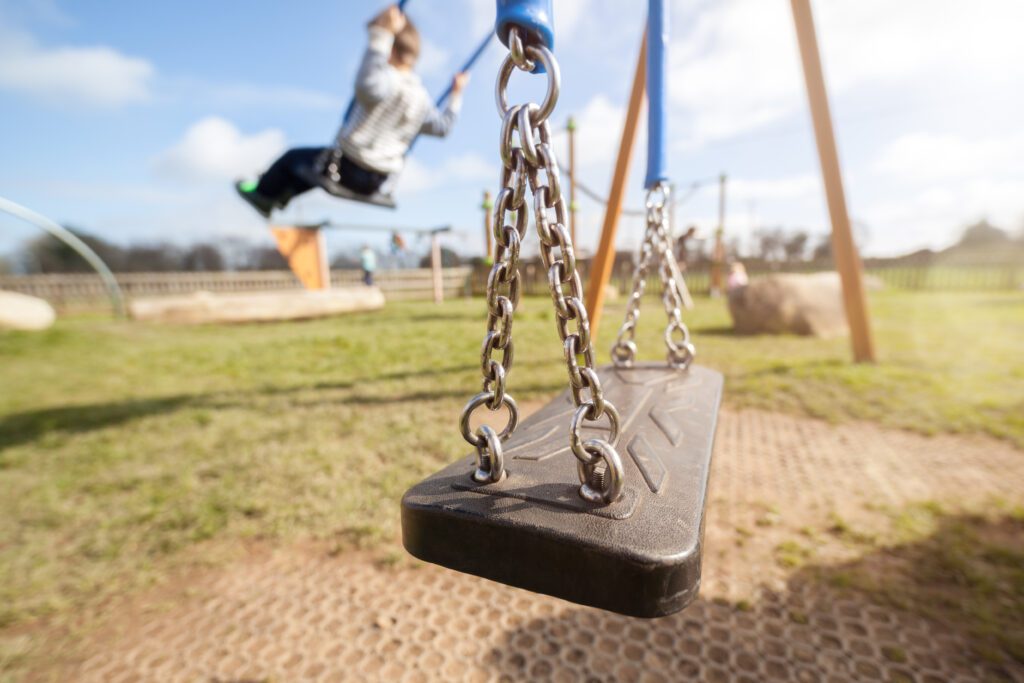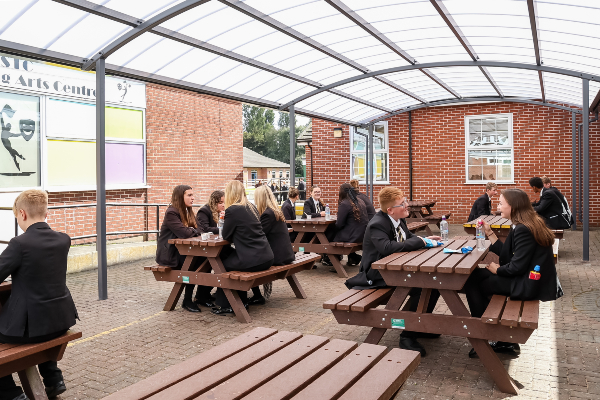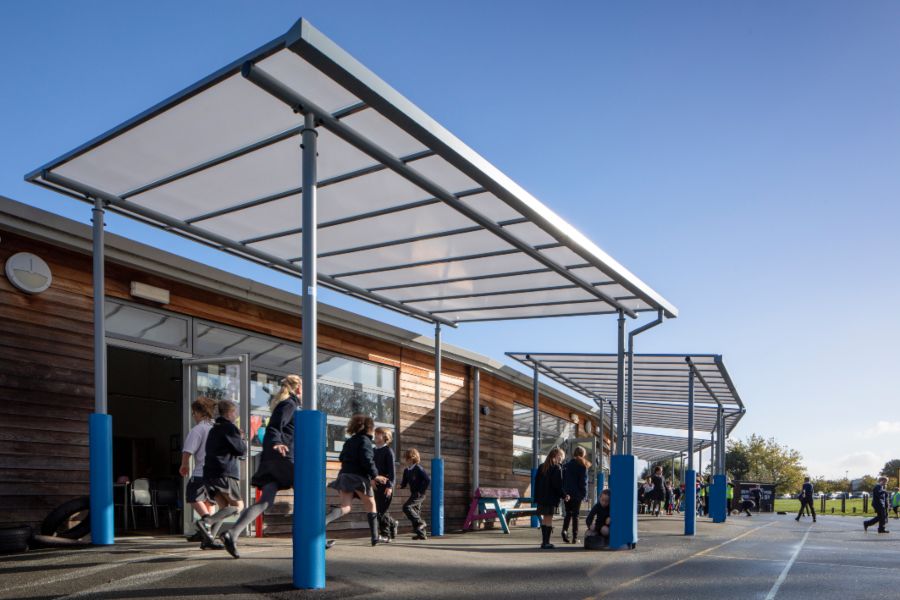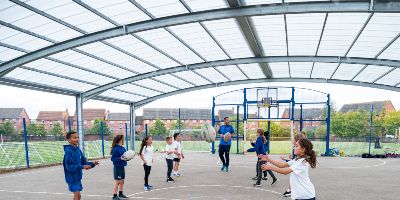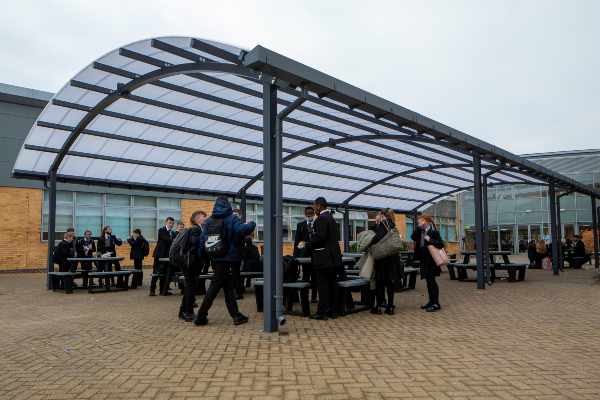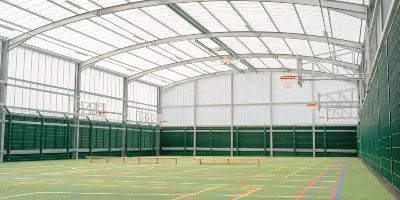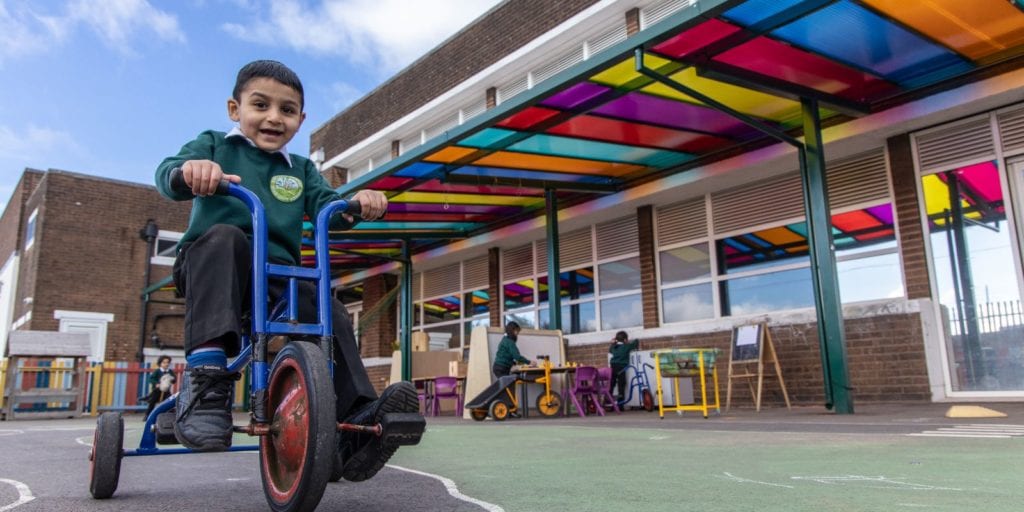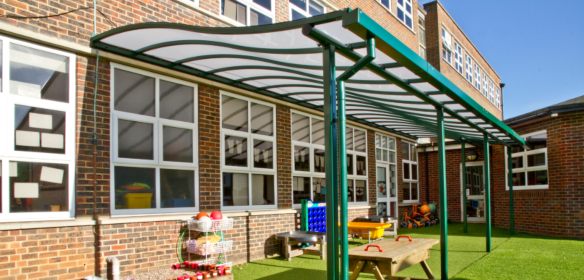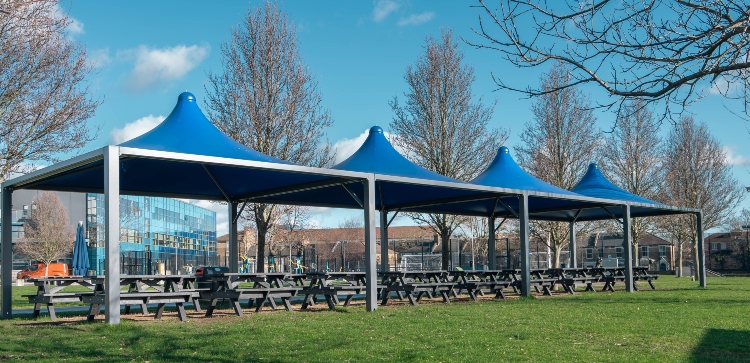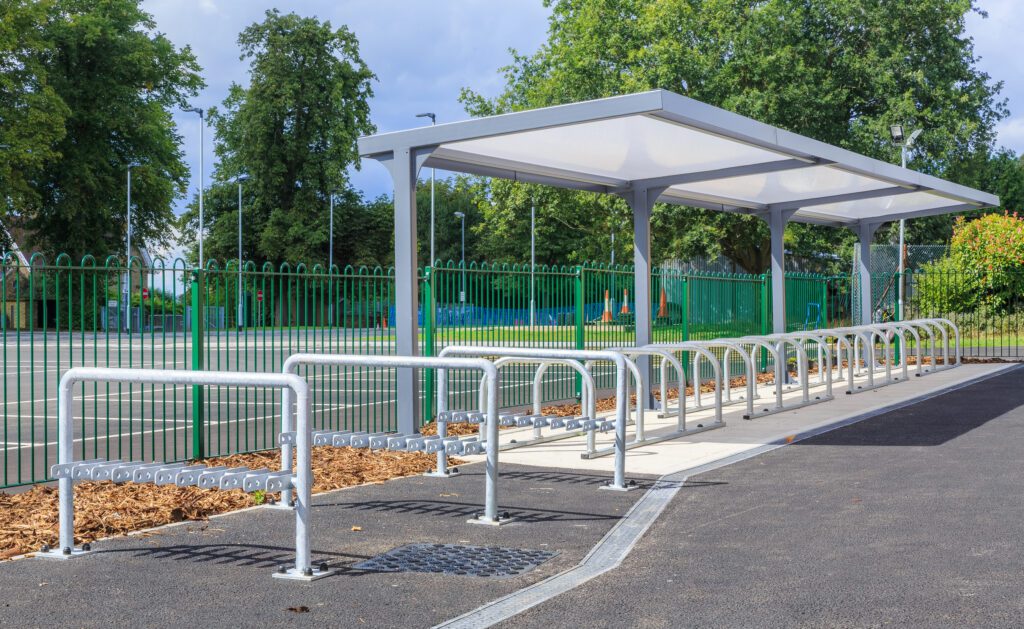It’s not news that children nowadays spend less time playing outside, and more time playing video games or texting their friends. But how alarming are screen time statistics looking in 2024? Is there an upward trend in screen use or are kids spending more time outdoors?
We’re about to find out.
As a school canopy design and installation company, this topic really matters to us and our clients. Our role is to create safe and inspiring environments for children of all ages, encouraging them to get outside to play, learn and socialise.
Current trends in children’s screen time
Back in 2021, Ofcom completed a survey that concluded 99% of households with children have internet access. With constant internet access and 57% of seven year olds owning a tablet device, it’s no surprise that browsing social media has become such a huge part of a child’s daily life.
- Children aged between 5-16 spend at least 6 hours a day looking at screens – split between gaming, television and mobile phones (source: Specsavers).
- Older kids falling into the 11-14 year old bracket typically increase their daily screen time usage to around 9 hours (source: The Independent).
- In 2020, screen usage increased in children due to school closures during the pandemic (source: Parliament).
- Parents claim that screen time is actually useful, as 70% of parents surveyed suggested that it helped with educational and development during school closures (source: Parliament)
- By age 11, 91% of UK children have their own smartphone (source: Guardian)
- TikTok is an app that takes up a lot of time for children. In 2023, the average time spent by a child on TikTok was 127 minutes a day (source: Statista).
- It’s been estimated that screen time decreases with age, as data suggests usage is higher in children and teens than adults (source: Ofcom). A 2019 survey concluded that 47% of parents expressed concern around the effects of screen use on their children’s health (source: Gov).
- A sleep study found that 6-36-month-old children who spend a long time using touchscreen devices were more likely to struggle falling asleep (source: Firelands).
- Researchers have observed that excessive screen time can contribute to child obesity, poor mental health and disrupted sleep (source: Parliament).
- Over 70% of young people in the UK do not undertake at least one hour of physical activity a day (source: Parliament).
Screen use amongst toddlers and young children
Early exposure to screens sparks debates about the impact on child development, with concerns ranging from delays in social interactions to disrupted sleep patterns. However, not all parents and educators are against screen time.
Children’s television channels such as CBeebies and BabyTV air educational content designed to engage babies and toddlers in learning activities. Some UK parents have claimed that programs like Word Party, which is created to teach vocabulary, have enhanced their children’s literacy and social skills (Shona Worsman, Senior Content Manager at Embryo and mother of two).
But what does the data reveal about the effects of screen time on infants and young children? Let’s find out:
- When a child hits 2 years old, it is advised that they should watch no more than 1 hour of TV each day (source: WPR)
- Children between 3 and 7 mainly just watch television (source: Parliament)
- Over 2022, children under 5 were the category of people with the smallest increase in screen consumption in comparison to adults and primary school kids (source: Parliament)
- 50% of 5-year-olds play games on tablets or computers (source: Business Insider)
- From birth to 18 months, medical experts suggest no screen time whatsoever aside from video calling loved ones (source: Mayo Clinic).
- Guidelines suggest that if infants over 18 months are introduced to television, then it should be a joint activity between parent and child (source: AAP).
Experts suggest that the most important thing is managing and restricting screen time to maintain a healthy balance.
Is there a link between screen time and academic performance?
The role screen time plays in academic performance is of significant interest to researchers and teachers. While modern education incorporates lessons using iPads and computers, there’s still much discussion about when and how screen time should be used.
Here’s what we found:
- Outdoor learning is beneficial to pupils,and therefore many scientists believe an over-reliance on screen time reduces the amount of time a child spends outdoors. Overtime, this could contribute to low academic performance (source: Shin. N).
- Some researchers suggest that spending 4 hours a day on technology can impact psychological well-being and have a knock-on effect on motivation to learn (source: Shin. N).
- Excessive usage of screen time can lead to slow cognitive development and poor social skills (source: Cureus).
- Multimedia tasking is said to significantly impact teenagers’ ability to concentrate on their studies (source: Cureus).
- Educational screen time offers the most benefits as it helps students engage with topics they may otherwise find difficult (source: Health Matters).
Ultimately, educational settings are a good place to use screens in moderation. With the right balance between screen time, traditional teaching methods and regular outdoor activities, students can get a well-rounded education and can enhance their academic performance.
Encourage students to spend more time outdoors with our help
As we know, children are spending more time on phones and tablets than playing outdoors, and this trend is not expected to change. However, playgrounds and public spaces have the potential to inspire and motivate children to engage in physical activities and social interactions.
A&S Landscape supplies outdoor canopies and shelters to schools, creating inviting spaces where students can enjoy the outdoors and socialise with their peers. By providing these environments, we can help foster a healthier balance between screen time and outdoor play, helping children feel motivated to learn and inspired to explore their surroundings.
